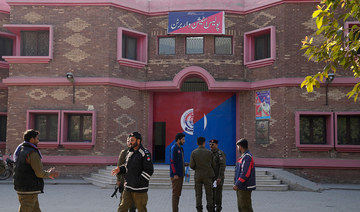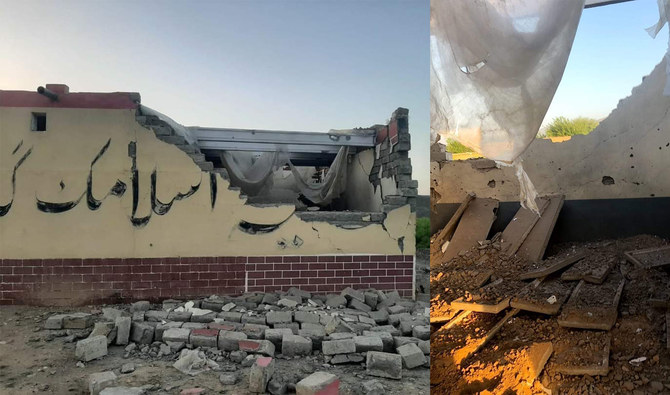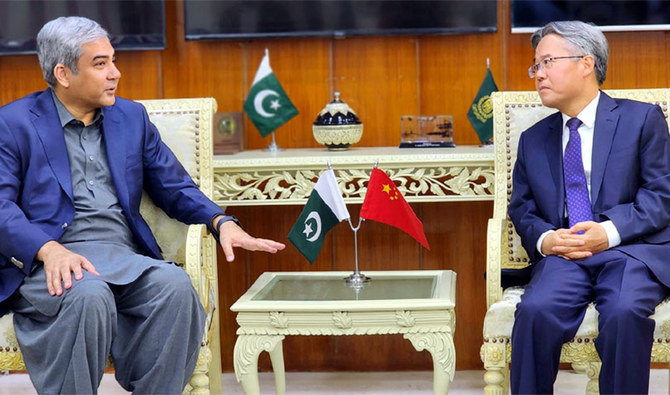KHAPLU, Gilgit-Baltistan: A Chinese national working on a prominent dam project in Pakistan’s northwestern Khyber Pakhtunkhwa (KP) province has been arrested on charges of committing blasphemy, a police official confirmed on Monday.
According to Pakistani law, blasphemy is an offense punishable by death. Incidents of lynching merely on accusations of blasphemy are common in Muslim-majority Pakistan, where most cases of blasphemy usually involve desecration of the holy Qur’an or insulting Prophet Muhammad (PBUH).
Mob attacks on people accused of blasphemy are common in Pakistan, although such attacks on foreign nationals are rare. In December 2021, a Sri Lankan factory manager in Pakistan’s eastern Punjab province was lynched to death by an angry crowd on allegations of blasphemy.
International and Pakistani rights groups say accusations of blasphemy have often been used to intimidate religious minorities and settle personal scores. Pakistan’s government has long been under pressure to change the country’s blasphemy laws, something right-wing groups in the conservative Muslim country strongly resist.
The incident is particularly important as China has expressed alarm over the lack of security of its citizens in Pakistan, where Beijing has poured in tens of billions of dollars in recent years, and large numbers of Chinese nationals are now based in the country to supervise and build infrastructure projects.
The latest incident took place on Sunday evening in KP’s Upper Kohistan District. The Chinese national, an employee of the China Gezhouba Group Company working on the Dasu dam project, was involved in a heated argument with Pakistani workers over long prayers breaks and slow pace of work in Ramadan, police said.
“The Chinese engineer is in our custody,” Muhammad Khalid Khan, a district police officer of the district, told Arab News over the phone. “When we got information of the protests yesterday, we took him into custody [to protect him],” he added.
Khan said the dispute occurred when the laborers were going for prayers and the engineer said something to them in Chinese. “However, when the translator translated it, people (locals) became angry and soon after, it led to a mass protest,” Khan said.
Khan said a jirga, or tribal council, was held in the district on Monday to discuss the issue. He added that the tribal elders left the matter to the police.
“They [the jirga] urged police to give punishment if he [the Chinese national] is found guilty of blasphemy,” Khan said.
Police presented the suspect in an anti-terrorist court in Pakistan’s Abbottabad city on Monday after which he was sent to jail on a 14-day judicial remand. The court ordered the suspect to be present for his next hearing via video link on May 2, 2023.
The Chinese embassy has not commented on the matter yet.
Amir Hussain, a columnist and analyst, expressed alarm at the incidents of Chinese workers facing violence in Karachi, Pakistan’s southwestern Balochistan province and now, in Dasu.
“This is a very unfortunate incident and [will cause] trauma for all Chinese nationals who are working/contributing to the development of Pakistan,” Hussain told Arab News. “And our journey to progress will be ceased, [if such incidents happen],” he added.
Hussain said blasphemy was turning into a security issue for Pakistan, adding that civil society and the country’s institutions should take notice.
“We have to promote [the culture] of tolerance and discourage intolerance and extremism for the image of our society and Pakistan,” he added.
Malik Afreen, a lawmaker from the upper Kohistan area, said the situation is under control and that there is no law and order situation in the area.
“An FIR has also been registered against him (the Chinese national) yesterday over the charges so the matter will be resolved by police according to the legal way,” Afreen told Arab News.
One of Pakistan’s most prominent blasphemy cases involved a Christian woman, Asia Bibi. Former Punjab governor Salman Taseer was shot and killed by his own guard in 2011, after he defended Bibi and vowed to get her justice.
She was acquitted after spending eight years on death row and following threats and countrywide violent protests, left Pakistan for Canada to join her family.


















